Captain America: Brave New World
Meanwhile...
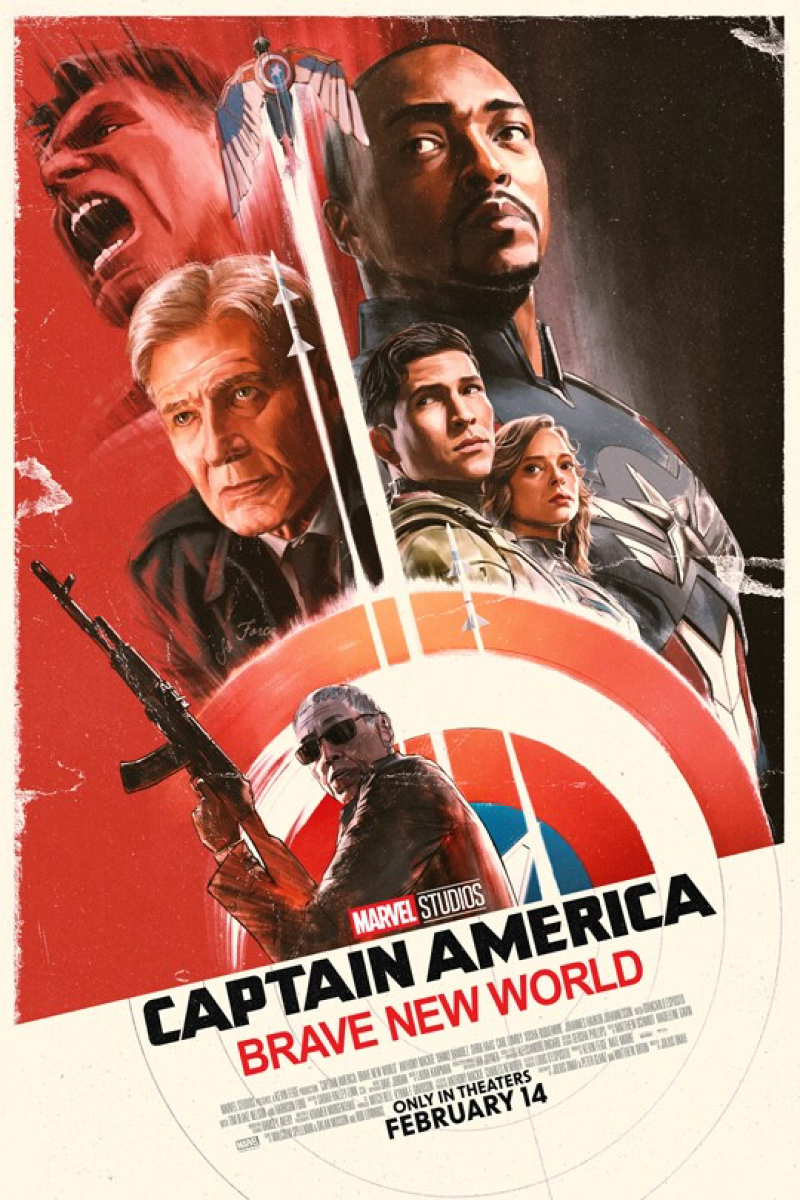
Sam Wilson, still settling into his role as the new Captain America, finds himself once again at odds with Thaddeus “Thunderbolt” Ross, now the President of the United States. Ross is growing increasingly unhinged, and his actions are bringing the world to the brink of war. Captain America must find a way to diffuse this ticking time bomb... before it’s too late.
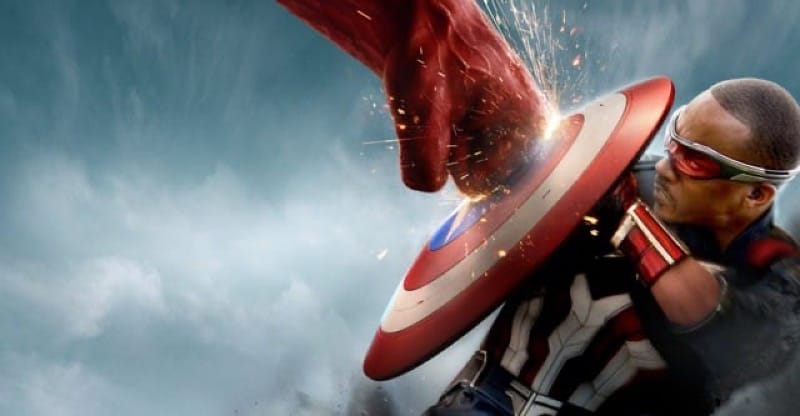
This was a difficult film to summarize. A tangle of plots and characters like a jambalaya of loose ends and half-baked ideas, Captain America: Brave New World is a production that seems like it just never came together right. Script problems, multiple rewrites, replacements both in front of and behind the camera, as well as a ton of reshoots, while none of this is necessarily bad or unusual on its own, this film in particular seemed to have been plagued with issues from start to finish, the kind of project that gets dragged over the finish line, instead of crossing it under its own power. The final version of the film is a Frankenstein's monster of conflicting versions and clashing ideas all welded together into an ugly, lumbering beast of a film, one that was obviously only released to the theatres simply because there was a deadline, and it had been reached, and the undeniable truth was, there was just no fixing it at this point. Ready or not, sometimes you just gotta wrap it up.
Captain America: Brave New World is the MCU's worst film.
Which is too bad, because much like the Falcon and the Winter Soldier Disney+ show–the prequel story of sorts to this film, a story that also felt rushed, with too many competing ideas all crammed together–many of its elements are potentially really good. I really wish we could've gotten a better version of what they had been attempting to do here.
The Characters:
Sam Wilson, Captain America

I've talked about Sam Wilson before. First appearing 56 years ago in 1969 in issue #117 of Captain America by Stan Lee and Gene Colan, Sam Wilson was the second Black superhero in mainstream American comics, after Black Panther, and the first Black American superhero in mainstream comics.
The character was supposedly named after the man who was purportedly the inspiration for Uncle Sam, the personification of the United States, which is an awkward and somewhat needlessly problematic extra little detail, but then, he was created by well-meaning white guys, and these kinds of things will often happen as a result. Like how Brian Michael Bendis made Miles Morales' dad be a cop AND named him Jefferson Davis, the same name as the President of the Confederacy, that brief nation of traitors, bigots, and slave owners much-beloved by the majority of white Americans, which is to say... it's very unfortunate for the character.
Originally introduced as a fan of falconry who stumbled into a Nazi plot, as can happen on occasion, who was then changed to a Social Worker from Harlem, then changed again into a guy who'd been a mob-connected gang member named Sam "Snap" Wilson the whole time, because his memories had been erased by that Nazi ubermensch, The Red Skull, using the awe-inspiring reality-shaping powers of the Cosmic Cube. This was later revealed to all be false memories though, that Sam's life as a drug dealing pimp had actually been created by the Red Skull in order to discredit Sam through racism. This was a wholly unnecessary effort on the part of the Red Skull, obviously, as racism is something that white Americans simply do not require any specific additional reasons to engage in.
I was first introduced to Sam Wilson in the comic book Captain America and the Falcon, which was one of the many classic titles that were in a big box of Silver Age comics my Uncle had left in the basement of my Grandparents' house, all of which I read voraciously every summer. Throughout most of the 1970s, the Falcon and Captain America were a team operating out of New York City. The stories featured a lot of espionage and Cold War stuff, using SHIELD and Hydra and the legacy of WW2, and often made a deliberate effort to talk about modern societal issues of the time, like fascist threats to democracy, or systemic racism in America. Same as it ever was, right? That said, it was still a comic book, so it’s not like it was all that hardcore political or anything, but the intent was clear, especially when compared to other comics being published at the same time.
Today, Sam Wilson is still a fan of falconry, and has a falcon named Redwing. And depending on the era of comics you're reading, he can sometimes talk to Redwing, and also to all birds in general. But most of the time, he's just a regular every day kind of guy who wears a winged-rocket pack.
But that wasn't always true.
Inexplicably, when he was first introduced, Sam Wilson wore a gauntlet that doubled as a perch for Redwing, and also housed a grappling hook that was shaped like a falcon’s claw. He called it the "Hawk-Hook" a name that makes even less sense than the entire idea of a bird claw shaped grappling hook. I mean, why the fuck isn't it called the Falcon's Claw? His name is the Falcon! He could've even called it the Talon!
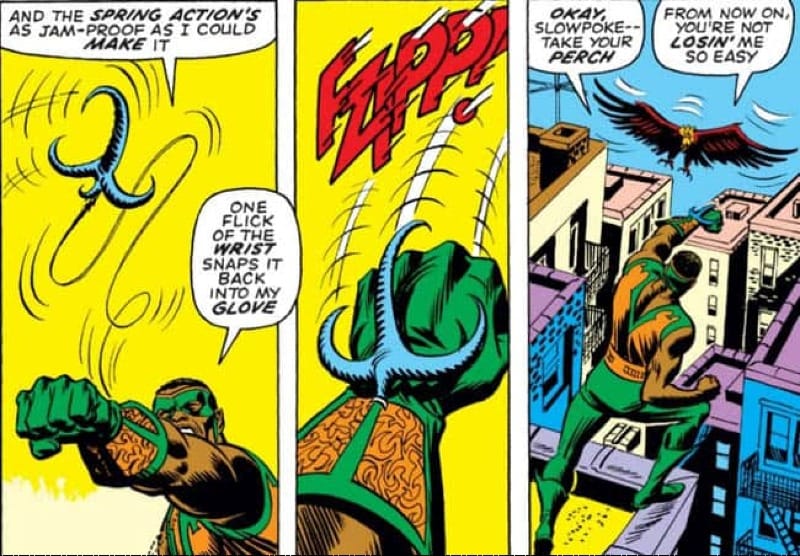
Anyway, for awhile, Falcon used his Hawk-Hook to swing around the city like Spider-man, all while calling himself The Falcon. Eventually, someone at Marvel sat up out of a dead sleep in the middle of the night and went, "But, wait... why doesn't the Falcon have wings?" And before long, that's just what happened. In yet another example of Reed Richards of the Fantastic Four putting off curing cancer or perhaps solving world hunger in favor of making nonsense magical sci-fi gear, Sam Wilson got his wings and was finally able to become the high-flying Falcon we know and love today. And reliably, the Official Handbook of the Marvel Universe: Weapons, Hardware, and Paraphanelia, vol 1, issue #15 (January 1984) came through and brilliantly illustrated how those wings would work.
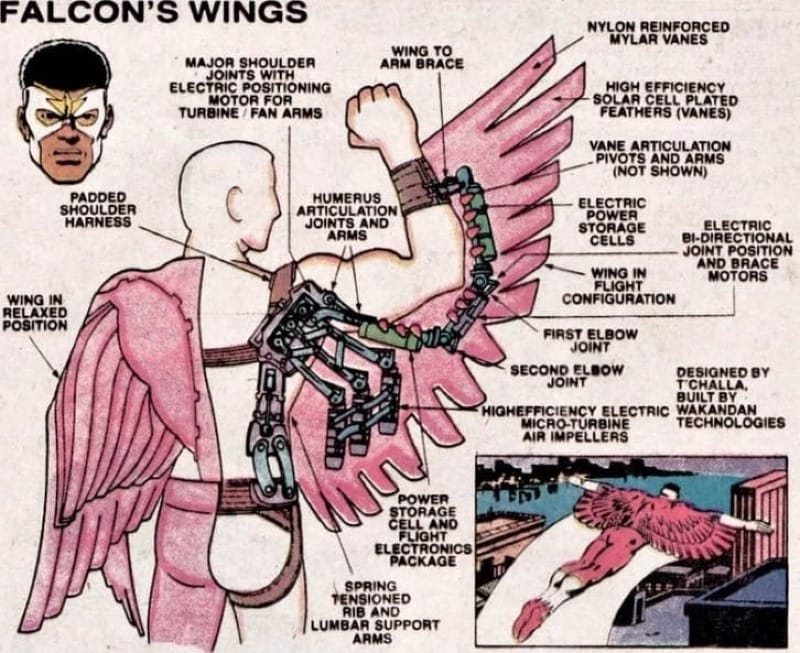
Then in 2015, after nearly 50 years, Sam Wilson gave up the Falcon name and officially assumed the mantle of Captain America, first in Marvel Comics, and then in the Marvel Cinematic Universe (MCU).
Isiah Bradley, the Black Captain America

But Sam wasn't the first Black Captain America.
I've talked about Isiah Bradley before too. When Steve Rogers became the first American Super Soldier, he was intended to be the poster boy of the war effort and the first member of an entire army of American Super Soldiers, a prospect which honestly sounds kind of terrifying. Perhaps luckily for the world, a Nazi agent had secretly infiltrated that first experiment, and managed to assasinate Dr. Abraham Erskine, the only man who knew the correct formula for the super soldier serum, right after successfully testing it on Steve Rogers.
Project: Rebirth was America's attempt to recreate the success of Captain America. Three hundred African-American soldiers were "reassigned" to a secret base, and there they were subjected to dangerous and often fatal experiments. Isiah was the only success. The rest all died, or they were executed to keep the U.S. government's secrets. Meanwhile, Isiah Bradley's heroic actions in WW2 earned him nothing but the contempt of his country, and once home, he was thrown in a cell in a federal prison to be forgotten for decades.
The story of Isiah Bradley is a reference to shameful American history like the Tuskegee Experiment, a medical experiments from the 1930s to the early 1970s. Overseen by the U.S. government, hundreds of Black men were infected with syphilis without their knowledge in the hopes of tracing the long-term effects of the untreated disease. Over 100 men died. Add in the fact that Isiah Bradley was imprisoned for decades, and his story becomes more than just a direct reference to the Tuskegee Experiment, but also a general metaphor for the African American experience of living under the boot of racist white America.
This makes him and his family important Marvel characters. But, being that they are such clear metaphors for white America's history of embracing racism, at the same time, Isiah, his son Josiah X, and his grandson Elijah, who is the superhero known as Patriot in the comics, Marvel is afraid of them. Marvel Editorial has tried over the years to sideline them all, and send them into limbo, where characters go to languish and fade from memory, a kind of real life corporate IP version of The Void from the Loki tv show and Deadpool and Wolverine. They even came up with a weak-sauce new character to replace Eli as the Patriot, and it was clear that it was all due to them being scared of having the reminder of where he comes from out front where white man-baby fanboys and pick-me girls can see him, because then they might get their feelings hurt.
And thats why, even though the roles in the MCU haven't be great, it's still good that Isiah and Eli are both involved in this franchise, and that because of that, Eli will probably show up in the future. That makes it harder for Marvel to ignore them and erase them, so the story of these characters, and what it means, will continue to get exposure.
Joaquín Torres, The Falcon

I'm only peripherally aware of Joaquín Torres.
I know he exists, but I haven't really read any of the books he's in. Also, I don't like his look. From the helmet, to the V-neck shirt, to the color scheme, to his bird-feet, the whole outfit just doesn't work for me. And really, the bird-feet are gross. Plus, it probably means that he wears open-toed sandals all the time, which is also gross. Who does he think he is? Jimmy Buffet? That said, I do like his background being that he is a Mexican immigrant who came to this country as a child.
Otherwise, I don't know much about Joaquin Torres, other than the fact that he was kidnapped as a teen by racist bigot militia white guys patrolling the border in Arizona, because they're evil white bigots, and that's the kind of shit they do in real life. I also know that he was experiemented on by a mad scientist who combined his DNA with that of Sam Wilson's falcon, Redwing. Why? I don't know. Why do these guys do anything? Probably just to see what would happen. The end result is that Joaquin developed bird-feet, wing-arms, and most likely a plethora of other bird-related abilities too, which I hope means "pooping while flying." Also, since Redwing is apparently "vampiric" ...which I have no idea what that means, or why they decided a falcon would also be a vampire, or anything about this. All I can say is sometimes shit gets wild in comics... Anyway, for some reason, this vampire-bird trait apparently means that Joaquin can transform back and forth between bird-man and human-man. So, I guess that means he can wear normal shoes.
Regardless of whatever the hell is going on in the comics, in the MCU, Joaquin Torres is just an regular, everyday, eager young guy in the military, who wears a wingsuit and fights supervillains.
Dennis Dunphy, D-Man

I didn't even realize D-Man was in this movie until afterwards.
D-Man, which is short for Demolition Man, has always been treated as kind of a joke character, and I have never understood why. He's not all that inspired of a character design, he has generic super-strength powers, and wears a Wolverine cowl and the yellow and red version of Daredevil's outfit, but the costume, at least, was intentionally meant to be a rip-off deliberately done on the character's part, perhaps to highlight how generally not cut out for the superhero world he was.
An affable doofus and a wannabe professional athelete, D-Man submitted to experiments to boost himself physically, and has superhuman strength, stamina, and durability. He's been a professional wrestler, a national hotline director, and a superhero, but he's never really found his niche. He's almost been killed in action several times, and has quit or retired from the life just as often. His experimantal augmentations have resulted in multiple heart failures, and to being manipulated mentally. He's struggled with mental health issues and also with being unhoused. Now, he mostly shows up whenever a scene calls for a big plethora of random and mostly forgotten heroes to stand around together, or whenever you need a failed former superhero to be kind of pathetic, like whenever VH1 would interview child actors from the 70s or the members of sensitive hair metal bands from the 90s. In this way, he's a very strange and fascinating character to me. I'm not sure how it was decided that this is who he is, but... here we are.
In this film, he was just a bearded special forces guy who dies in a weird way.
Sabra

I don't think I've ever actually read a comic with Sabra in it.
I know about her. But it's mostly because she always appears on lists like "superheroes in other countries" or "Jewish superheroes." But while she's often held up as THE jewish superhero, she's not the only jewish superhero in Marvel comics. Magneto, Kitty Pryde, Doc Sampson, The Thing, Scarlet Witch, and Moon Knight are all jewish, and of course, so is Bernie Rosenthal. They have all appeared in Marvel movies before too (except for Bernie), so technically, Sabra, whose real name is Ruth Bat-Seraph, is not even the "first" jewish superhero in the MCU. She might be the first Israeli superhero, but I'm not entirely sure there.
Ruth Bat-Seraph is a mutant who serves as an agent to the Mossad. Named for a term to describe a native-born Israeli Jew, and inspired by the prickly pear cactus that is thorny on the outside but soft on the inside, Sabra was originally envisioned to be a kind of Israeli version of someone like Captain America or Red Guardian.
That's who she was reportedly supposed to be for this film too, but Marvel/Disney got cold feet and reimagined her as a former Black Widow assassin, someone who survived the destruction of the Red Room by Natasha Romanov and Yelena Belova in the movie Black Widow, and now is very vaguely possibly an Israeli agent who might have superpowers, and is attached to the White House as an advisor, I think maybe...? It was unclear, and honestly, she does so little in this film, why they even kept her in it after hacking it all up so much, I can't even begin to understand.
Sidewinder

One thing I've always liked about these old school comicbook supervillains, like Sidewinder, is how their outfit dares to boldly announce to the world: "Theme? Fuck theme! I'm a supervillain! And yes, I do love drama, thank you for noticing."
There's been a couple of Sidewinders in Marvel comics, but the specific one that we're concerned with is a man named Seth Voelker. Seth Voelker is a cheesehead from Wisconsin, a former Economics professor who was chemically mutated, and given the power to teleport, by the always nefarious Roxxon Oil Company, all for unknown reasons that are presumably generally evil. Upon receiving these powers, Seth immediately put together his whole outfit, and then began his new career as the supervillian Sidewinder.
You probably have a couple of questions now...
- What does teleportation and a guy from Wisconsin have to do with a snake-themed motif, specifically the venomous Crotalus cerastes, more commonly known as the sidewinder, the horned rattlesnake, or the sidewinder rattlesnake, a member of the pit viper species that is mostly found in the desert regions of the Southwestern United States and northwestern Mexico?
Nothing.
- Why does Seth Voelker do any of this? Sure, it's understandable why anyone would jump at the chance to be able to teleport, and also take any other job other than being an Economics Professor in Wisconsin, but why immediately become a vaguely snake-themed supervillain?
Because some people are simply evil fucking assholes who like to blow shit up and steal everything they can carry, especially when they're mediocre white guys from middle America. Now, in the world of comicbooks, when this happens, you end up with fanciful little goons like Sidewinder, running about in sparkly tights, making dramatic declarations to the world, while shaking their fists at the sky. That's fun. In real life, you get Trump, and all those happily pure evil small business-owning scumbags who voted for him, the dumbest and ugliest people in the world. That's not fun. And thus... modern day America.
At first, Seth worked as a hired henchman, but shocked by the sheer number of vaguely snake-themed supervillains, Seth saw an opportunity. And this eventually became the Serpent Society, a kind of trade union of snake-themed criminals for hire. Over the years, he's had some ups and downs, as one might expect when you live that supervillain life, which mostly resulted in him being violently deposed by one of the other members of the Serpant Society, all of whom are not exactly the most loyal or trustworthy of folks, and eventually, Seth retired.
In the movie, he's... I don't know... a private military contractor? A terrorist? Some guy in a turtleneck and a trench coat?

In the end, say what you will about my man Sidewinder, but the guy put on a great spread. I mean, come on... a posh midtown hotel? A buffet? Where do I sign up to become a part of...
The Serpent Society
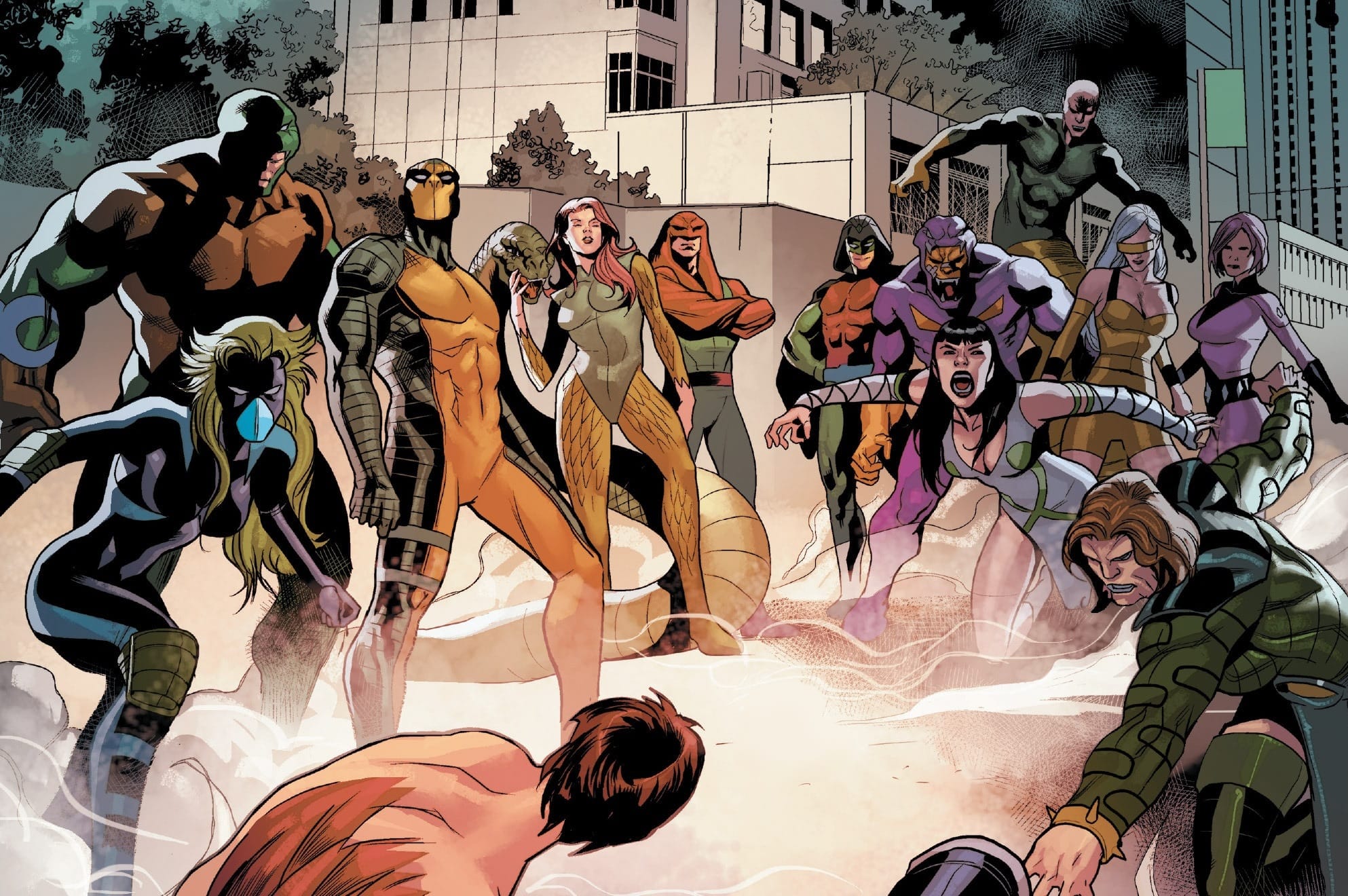
The Serpant Society is just a bunch of like-minded weirdos, nothing but every day folks who really enjoy putting on some colorful vaguely snake-themed costumes and committing crimes, who all somehow managed to find each other in this big crazy world.
That's a beautiful thing.
Too bad they don't really appear in the movie at all. I mean, there's a guy with knives who is supposedly called Copperhead, but he just looks like a regular-ass bearded military guy in tac-gear. At one point, the film was supposedly going to include a more comicbook accurate Diamondback, but in the end... nope.
Missed opportunity, my friends. Missed opportunity.
The Leader
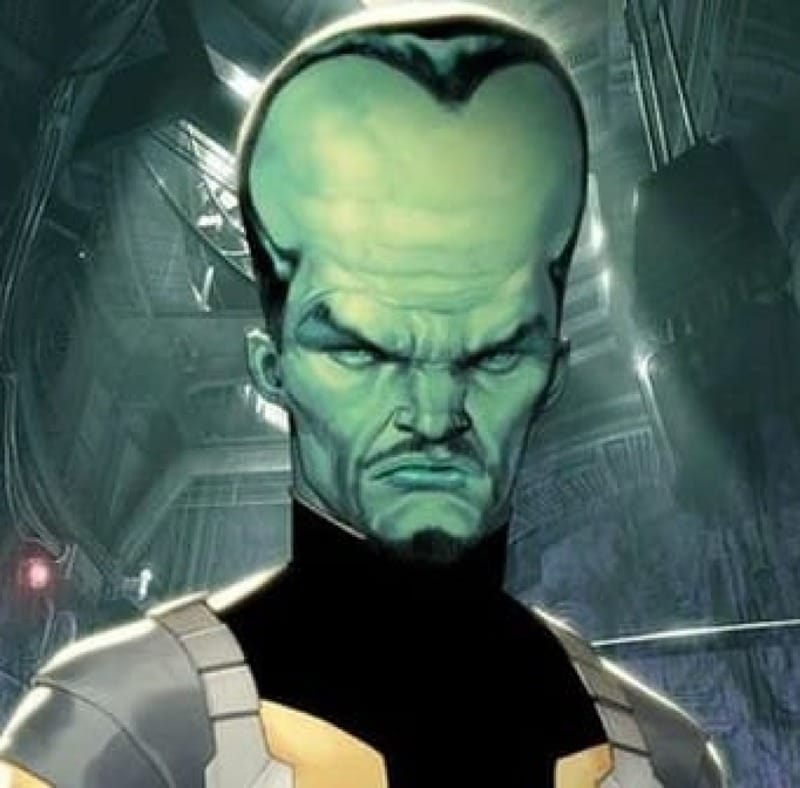
Now, right away, you can probably see why The Leader might be a little bit upset with the world. You might see how, maybe he would believe that he had drawn a bit of a bad hand, as they say.
After all, that's not a forehead, that's a fivehead.
A former janitor from Boise, Idaho, Samuel Sterns was inadvertantly exposed to gamma radiation, much like the Incredible Hulk. Only instead of turning him into an uncontrollable rage-beast due to his refusal to go to therapy, like it did Bruce Banner, Sterns was mutated into a green-skinned, super-intelligent man, who dubbed himself the Leader, and immediately embarked on a career of world domination. Why did he choose to do this instead of using his great intelligence to benefit the world? Well, I don't know. But I'd be willing to bet it's because he was a mediocre white guy from Boise, who used to have a menial job, and is now green and weird-looking, and probably blames that for his dating woes, instead the real reason, which is that he's enamored with his own intelligence, believes the world owes him a position of leadership, and probably refers to women as "females" all the time, but who knows... maybe it's because a transman once beat him in chess or something, and that's the world's fault, not his.
Anyway... in this movie, Samuel Sterns is a loose plot point that stretches all the way back to June of 2008 and the Ed Norton film, The Incredible Hulk, which was the second film of the MCU, released barely a month after Iron Man. In that film, Samuel Stearns was a fellow gamma scientist that Bruce Banner had sought out for help, who then had some hulk blood drip into an open wound on the side of his head, and now he's an angry supervillain.
These things happen.
Thunderbolt Ross

First appearing in The Incredible Hulk #1 in 1962, General Thaddeus E. "Thunderbolt" Ross was created by Stan Lee and Jack Kirby. From the very start, he has been to the Hulk what J. Jonah Jameson is to Spider-man, an unreasonable and unrelenting enemy who is constantly dogging our hero's heels. A jingoistic war hawk, part Captain Ahab, part government stooge looking to use the biotechnology the Hulk represents to further America's interest, and part angry old white guy who fucking hates Bruce Banner, the "elite, book-learning, know-it-all wuss" that is having a lot of sex with his daughter, Betty Ross. Ever since the creation of the Hulk, Ross has pursued Bruce Banner with an insatible obsession. This eventually led to Ross becoming The Red Hulk.
The Red Hulk first appeared in Hulk vol. 3 #1 in January 2008, created by Jeph Loeb and Ed McGuiness, but his identity as Ross was the worst kept secret ever for almost two years, and even after revealing the truth, they never fully explained why Ross' mustache disappears when he becomes the Red Hulk.
My least favorite comic book creater–one of the people who is mainly responsible not only for the generally terrible Marvel Netflix shows, but also the giant turd that was Agents of SHIELD and Heroes–writer Jeph Loeb, described Red Hulk thusly:
"The Red Hulk is the kind of Hulk we haven't seen before—a thinking, calculating, brutal weapon-toting kind of Hulk. Everything the Green Hulk isn't, the Red Hulk is. Except, of course, for his powers which are identical. And he looks the same, except he's red. And he's the same size. But other than that, they're complete opposites."
In this movie, after first being portrayed by Sam Elliot, and then William Hurt, Thunderbolt Ross is portrayed by Harrison Ford.
Adamantium
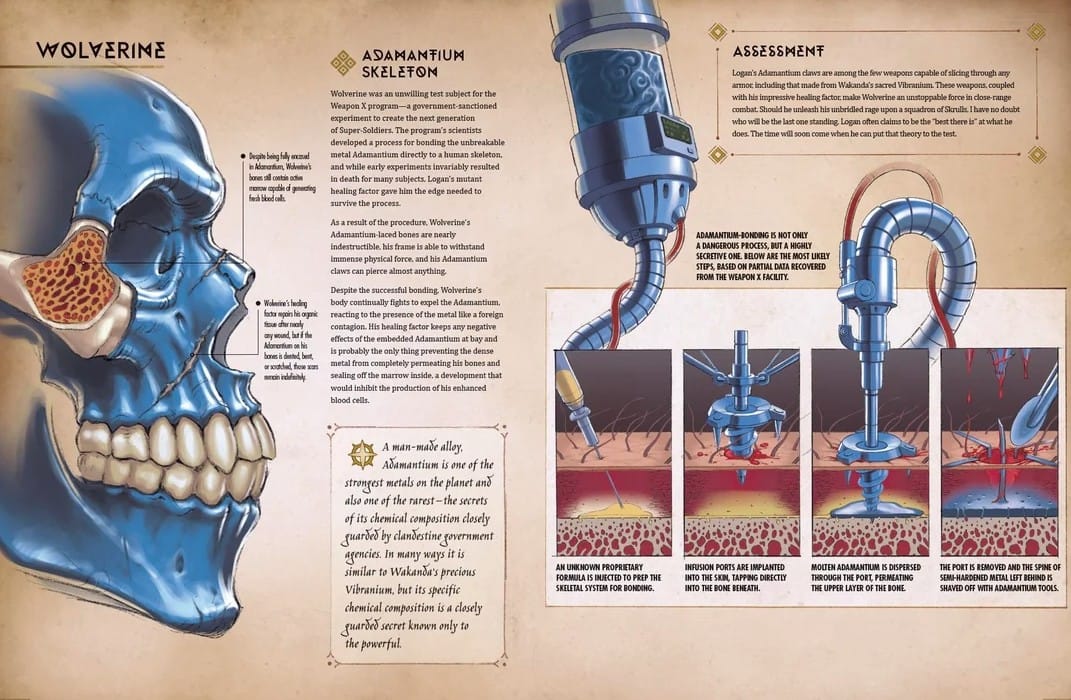
Adamantium is Marvel Comics magic.
First mentioned in The Avengers #66 in July 1969, by writer Roy Thomas and drawn by Barry Windsor-Smith and Syd Shores, as part of the evil robot Ultron's outer shell, Adamantium's defining quality is its indestructibility. In its solid form, it is near-impossible to destroy or fracture, and with a sharpened edge, it can cut through just about anything.
It's perhaps best known for being the metal that coats Wolverine's skeleton and claws, and for the never duplicated version called Proto-Adamantium that is part of the mix of metals used to create Captain America's shield. But in the years since, it's about as uncommon in the Marvel Universe as fun-sized candy bars are on Halloween. You got a brand new little bad ass at your door, all dressed up and begging for treats? Well then, give them something made of Adamantium, it's Marvel comics shorthand for "bad ass!"
And now... The Movie!
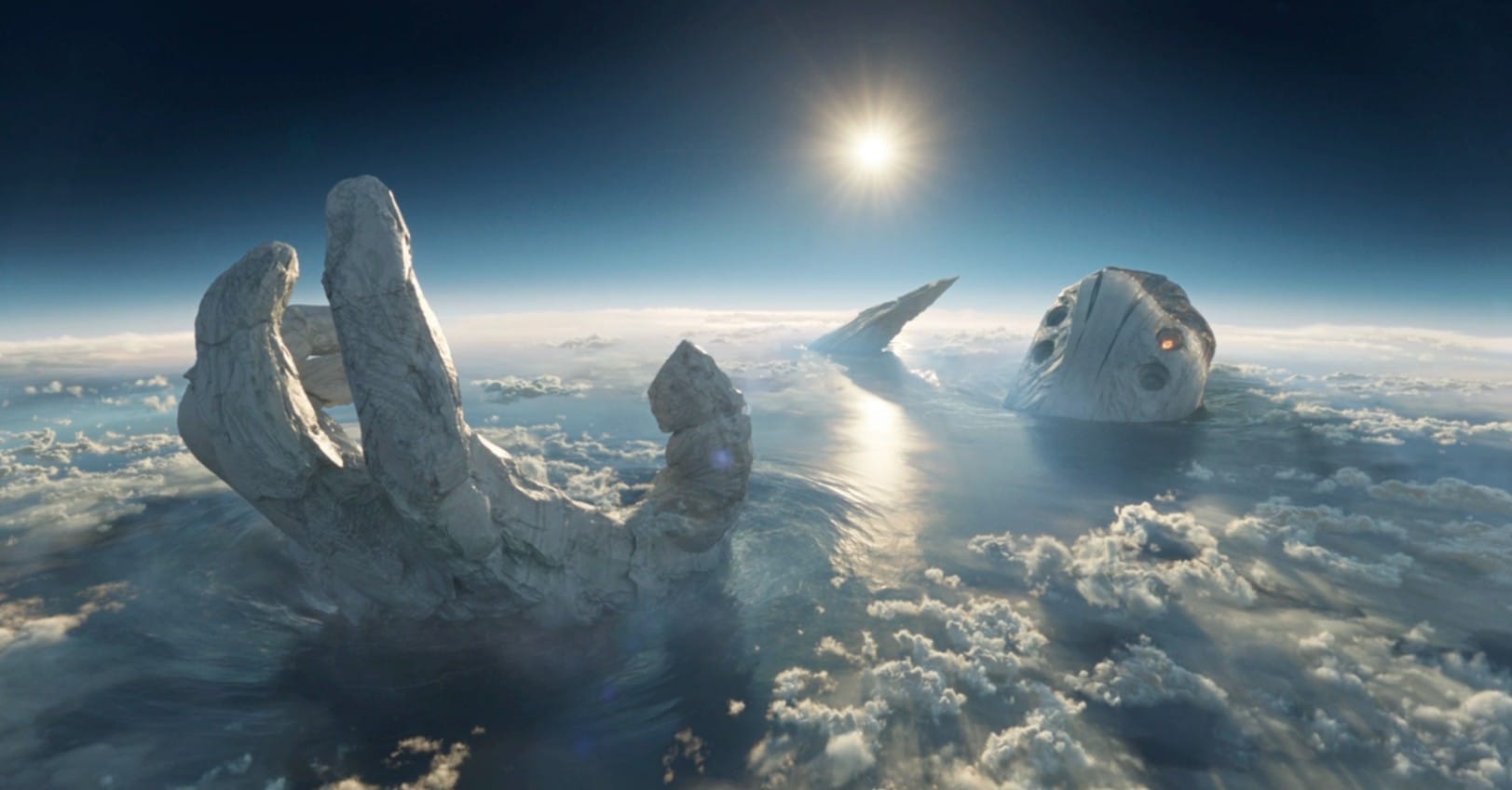
Adamantium has been discovered on the giant stone corpse of the still-born Celestial in the middle of the Indian Ocean that you should all remember from the Chloe Zhao movie The Eternals (and also from the endless whining from the big baby fanboys out there, because the MCU hasn't mentioned it enough for them in the time since that movie), and as a result, the world is in turmoil.
Thaddeus Ross, the newly elected president of the United States, sends Sam Wilson and Joaquin Torres—the new Captain America and Falcon, respectively—to Oaxaca, Mexico, to stop the illegal sale of stolen Adamantium by the terrorist known as Sidewinder, and his mercenary group, Serpent.
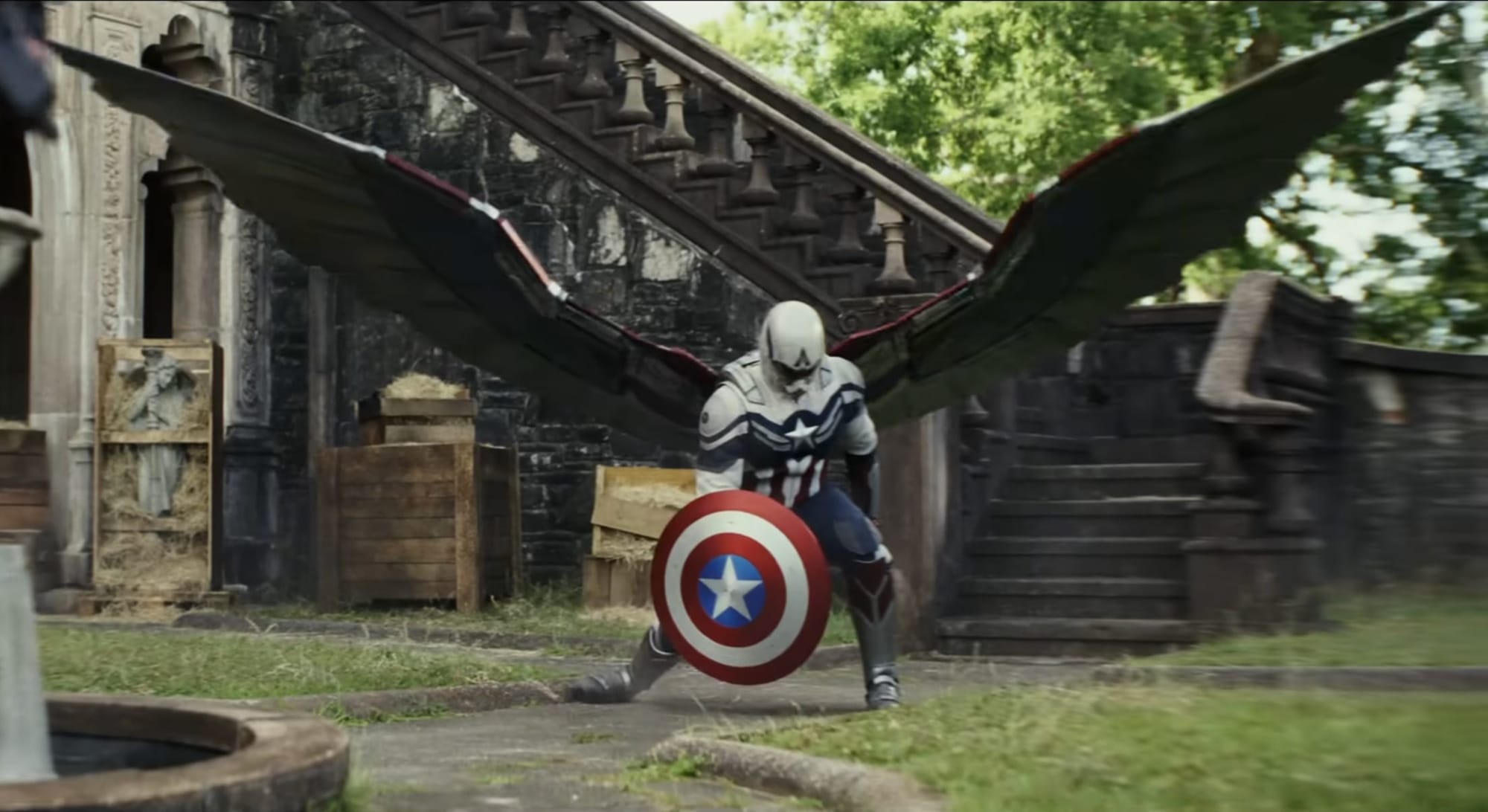
There's some fighting and some banter, and then Cap and the Falcon save the day. For their success, Ross invites Wilson and Torres to a summit of world leaders at the White House, and Sam brings Isiah Bradley along. While they're there, Ross asks Wilson to help him reform the Avengers, and they rehash the basic question that Steve Rogers asked in the movie Civil War.
"What if we don't agree on how to handle a situation?"
The question of superhero autonomy from governmental bodies, of the ethics of vigilantism, the power imbalance represented in strength equalling righteousness, the inherent authoritarian nature of superheroes... these are potentially interesting questions, but other than this moment here, the film doesn't address them.
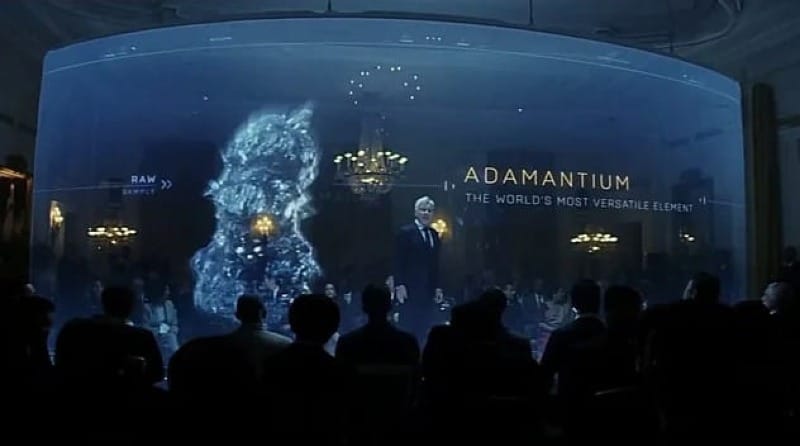
Anyway, during the summit, Ross announces to the world how adamantium has been discovered on "Celestial Island", which is what they're calling the dead baby Celestial in the Indian Ocean, and how this means that Wakanda and its refusal to share its Vibranium willy-nilly can now go fuck itself. He then magnanimously explains how terrorists tried to steal Japan's adamantium, but Captain America got it back, and now the U.S. is returning it to Japan.
This whole dog-and-pony show is just Ross trying to avoid a conflict over the United States basically controlling this newly discovered resource. He's using the public stage to force Japan–our chief nemesis for possession of those rights, along with France and India, presumably because using China or Russia would've upset Hollywood's best market, and Trump's Master–into agreeing to sign onto Ross' treaty governing the global ownership of Celestial Island and the Adamantium that is located there.
Unfortunately, at his moment of triumph, the song "Mr. Blue" plays. Internet spoiler knowledge notwithstanding, any nerd worth their salt and paying attention will immediately know who the main villain is, as Mr. Blue was the name Samuel Sterns used in the Incredible Hulk movie while secretly communicating with Bruce Banner, whose codename was Mr. Green, for obvious reasons. But the song plays, and Isiah Bradley and several others, all clearly in a trance of some kind, cause a big ruskus, and it is only through the efforts of Sam Wilson and Ruth Bat-Seraph that Thunderbolt Ross survives.
Isiah is arrested, claiming that he has no memory of the assassination attempt, and Sam vows to get to the bottom of this mystery.
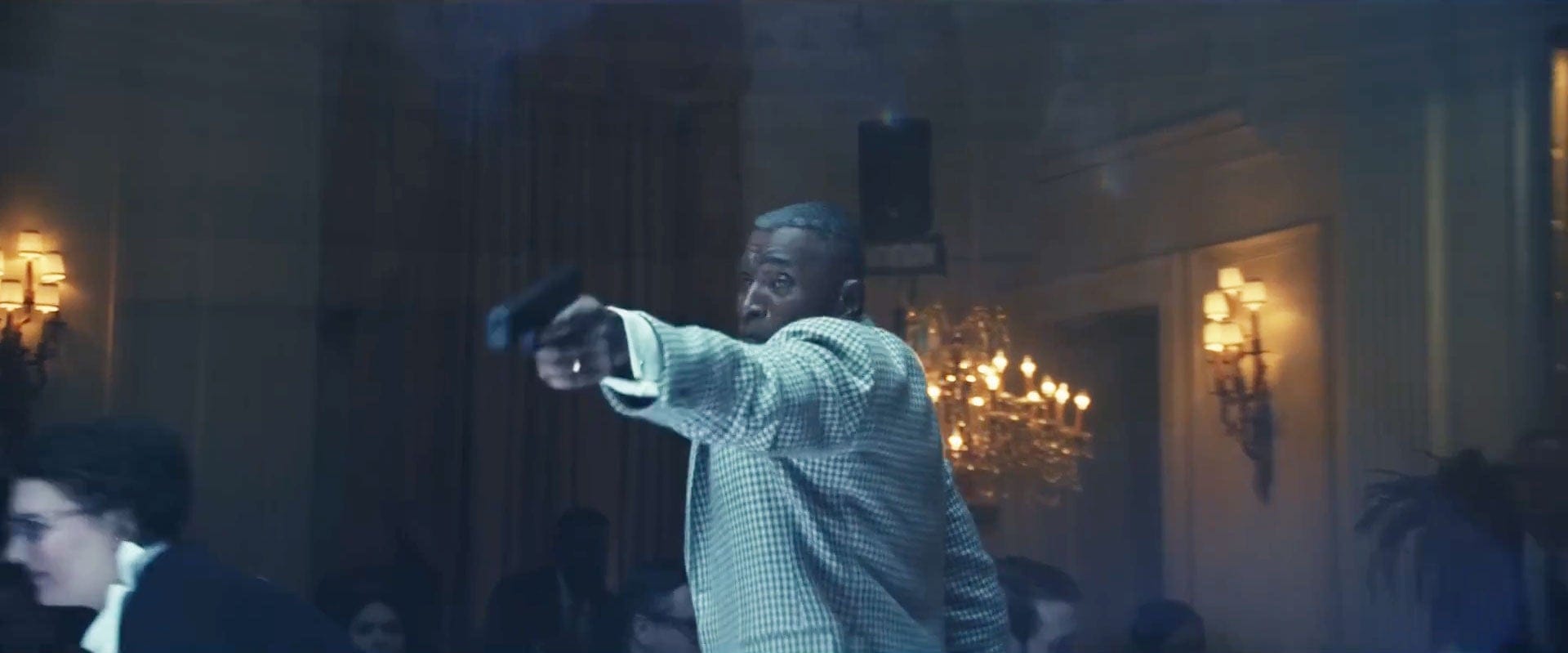
So, while Sidewinder and Sam do a brief and somewhat poor recreation of the highway fight from Winter Soldier, and Ross tries to salvage the treaty with the Japanese government, it's revealed that after the events of the Incredible Hulk, where Hulk and the Abomination tore up Harlem fighting each other, Ross had Stearns arrested and blamed for everything, then quietly disappeared him to a Black Site Prison. There, he promised to release Sterns, if he used his advanced intelligence to help Ross gain the presidency. But now that Ross is the President and hasn't kept his promise, as Presidents are wont to do, Stearns is super salty about it and ready to rain on Ross' parade. Part of his plan is to use his Mr. Blue-triggered assassins for murky reasons, just general bad guy stuff, I think, but the real plan was that he has been dosing Ross' heart medication with Hulk-inducing gamma radiation, and you can see the rage building in Ross.
So, after everything has crumbled, and the treaty has fallen apart, and the world almost went to war at Celestial Island, and Ross was humilated on the world stage, the old man flips out and becomes the Red Hulk.
And it's up to Captain America to stop him.
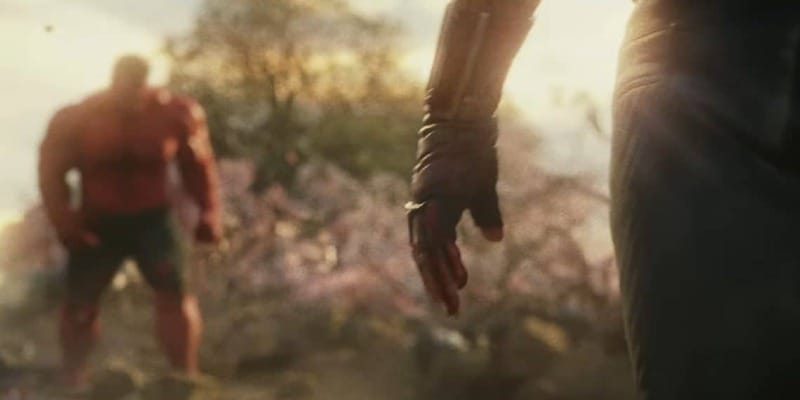
That's the movie.
Despite an underwhelming feeling of general incoherance, as well as a feeling of being both poorly executed and unfocused, audiences seemed to enjoy this film. As a result, Captain America: Brave New World did a respectable, if not noteworthy or impressive amount at the domestic box office, at least as far as big MCU films go.
That said, it's also fair to point out that what it did do is basically in line with how most of the MCU's "first introduction of a new character" movies have done, which Sam Wilson as Captain America certainly is. I don't know if this film made enough for the powers that be to be all that rarin' to go as far as sequels are concerned, but then, the same could've once been said about the Hulk and Dr. Strange. Then the Avengers happened for Hulk, and Infinity War happened for Dr. Strange, and they were hot properties. Being that Sam Wilson is reportedly central to the upcoming Avengers Doomsday and Secret Wars movies, who knows? Things could turn around for the character.
But for now, Captain America: Brave New World mostly felt like a disappointing half-effort by a director who was either out of their depth, doesn't like the source material, or both, and all while using the ugliest mish-mash of bad scripts possible. Uninspired, lacking any daring, not to mention a clear vision, and all while clearly being aware of how the Winter Soldier touched on the tense politics and paranoia of Three Days of the Condor, but seemingly not understanding how it did that, all while it attempts to do the same thing, but with Manchurian Candidate, Captain America: Brave New World is a shallow film. It lacks any meat or blood, despite having plenty of bone it could've potentially latched onto.
There was also an overwhelming feeling of non-cohesiveness to this film too. This was mainly the result of too many reshoots being too poorly welded together, and in that way, it reminded me of Thor: Love and Thunder. But the big difference between the films is how Love and Thunder was trying to be too many things at the same time, while Brave New World feels like it’s working hard to not be anything specifically, and is more trying to be everything for everybody, which only makes it seem toothless and out of touch.
In the end, this film felt more like an obligation they needed to do, than a story anyone was interested in telling. It seemed more focused on tying up various loose ends from past films like Norton’s Hulk, Black Widow, and the Eternals, like it was clearing the last of the junk out of the garage, before moving to the new place, the next phase of the MCU. And maybe that's what this was, I don't know. If so, well, that much at least was accomplished, I guess. Congratulations.
It was also a good way to introduce Adamantium, so good work there too.

But other that... there's not a lot worth returning to here, not even the action.
And if you asking me, I think everything that's wrong with the film is best illustrated by the outfits. Y'see, Sam Wilson has no superpowers. He just has the wing suit. And now that he's Captain America, he has the shield too. And that's it. That's the whole point of the character. He's out-matched. He's outgunned. But he's still standing between innocents and the bad guys and saying "No. You move." But in the film, he's got his Wakandan-made magic Vibranium suit that flies fast enough to keep up with F-35s, and also the wings apparently slice through cars, and it just feels... overpowered. And people will go, "Well, how's he supposed to take on Red Hulk if he doesn't have superpowers?" And the answer is, well, he can fly and he has the shield, maybe use that? But also... yeah, that's like the whole problem! How IS Sam Wilson going to take down Red Hulk? Work on that a bit. Because that's the thing that makes it cool, the novel way to solve that question.
That's the point.
And the opposite side of that costume coin is... they should’ve put the Serpant Society in their crazy outfits. In a film like this, a character introduction, you gotta embrace the weird. The Falcon is "high flying" not because he's fighting jets, but because he's daring, he takes risks. He's wearing a god damn wing suit. That's not a power, and yet he's fighting aliens and armies and now Hulks. The film should've done the same thing. Take a risk. That's what made Thor a hit. That's what made the Guardians a hit. That's what made all of them a hit. What does Marvel have to lose if Sam Wilson doesn't become a huge hit? Nothing but money. They got other characters to lean on, and besides, the MCU still has room for films that don't go gangbusters, and a bunch of new things on deck too, so fuck it, why not take the brakes off? Fuck using Private Military Contractors and Special Forces Operators. We have seen that shit before. Too many times! What we haven't seen is a lone superhero facing off against a bunch of superpowered weirdos. If you manage to pull off something like that, it would be impressive, and failing at it would still be somewhat noteworthy too, because at least you tried, but instead making a ho-hum retread of things we've all seen before? That's a bunch of basic bitch bullshit right there, my friends.
And it's not only boring, it shows a lack of understanding of the material too.
Way back in the day, back in November of 2004, a comic book called The New Avengers–which is the reason why the new Thunderbolts movie has an asterisk in its title, btw–was released. It was by Brian Michael Bendis and David Finch, and it was a reboot of the Avengers team that hinged on the idea of massive breakout at the Raft, the smaller prison island just off Riker's Island in New York City, that was meant specifically to house superpowered supervillains. This breakout released a ton of bad guys back out into the wild, and trying to contain the madness was the reason for this new Avengers team to assemble. It was the beginning of a new era of Marvel comics, and a ton of ideas in a ton of related books would spin out of this moment. It all starts with a mysterious client meeting a man named Max Dillon, the electricity-powered supervillain known as Electro, at a bar, and hiring him to do the big breaking out. The mysterious client lays out the job for Max Dillon, who ends the meeting with a simple question. He asks how the client would like him to do the job, costume or no costume. The client says they have no preference. Given that choice, Max Dillon knows his answer...
"Costume."
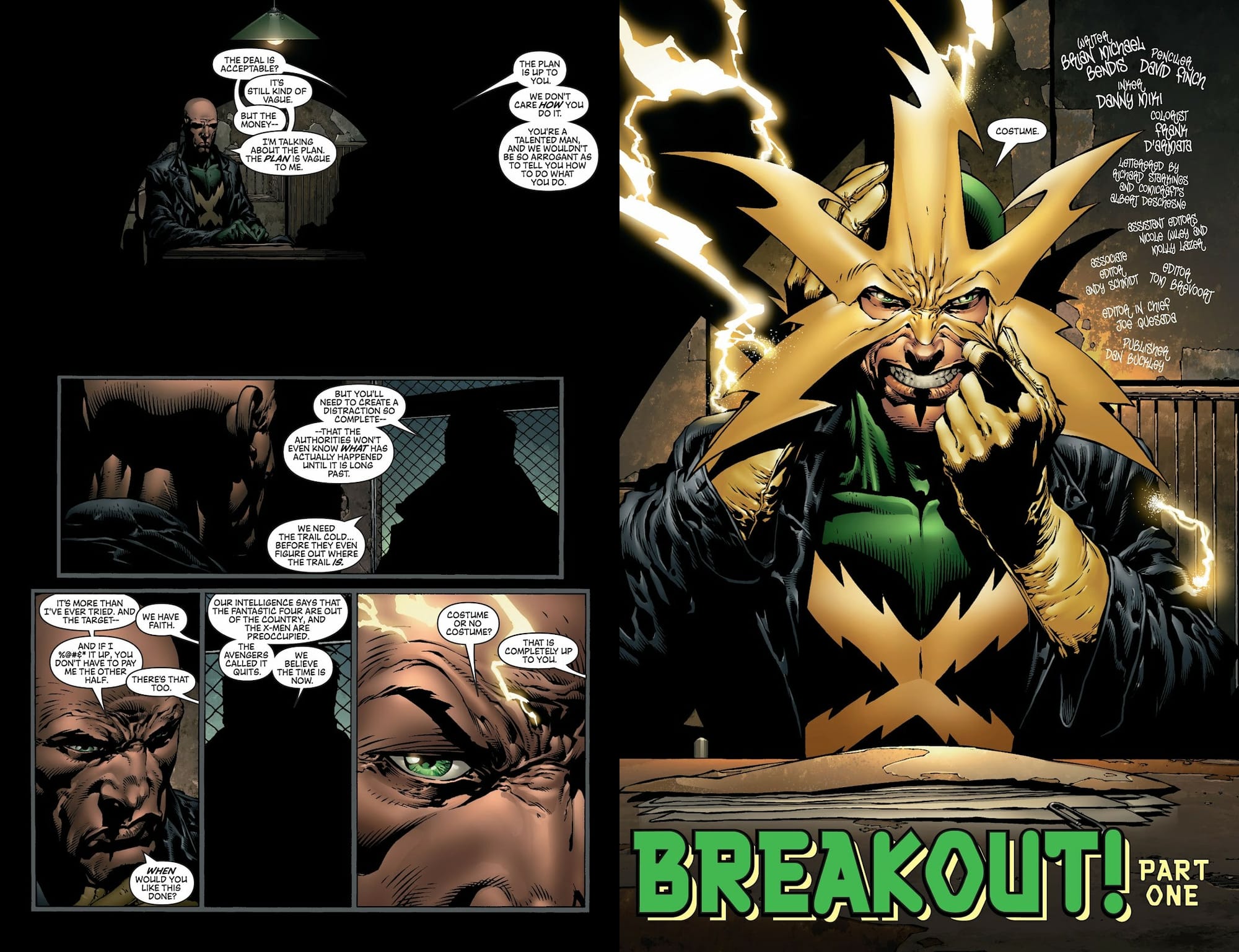
I bring this up because that's the whole fucking point of these films. Why do they wear the costumes? Because they can. You want a movie about a bunch of people kicking the crap out of each other, or pulling off big raids and gun battles, all while wearing tac-gear and members only jackets, well, then there's so many movies that do just that, my friends, and a lot of them are super awesome. If that's what you'd rather watch, then go ahead, that's fine. But when it comes to these kinds of movies?
You wear the costume.
That this film in particular is blessed with so many wacky characters, and yet it refuses to embrace them and showcase them, is a sad call back to why superhero films in the 90s and early aughts were all so terrible and boring with their sad emo heroes in hoodies and scarves, and no color, no flair, no pizzazz. It also shows that the filmmakers don't understand a big part of the reason why the MCU was such a big hit... crossovers and costumes. Anyone who tells you differently doesn't know what the fuck they're talking about. On top of all that, the fact is, choosing to have the Serpent Society, but not their costumes is boring. Straight up boring.
So between that, and leaning on the easy answer of turbo-charging Sam Wilson's suit to Black Panther/Iron Man levels, that's the film's problem in a nutshell...
It's boring and lazy.
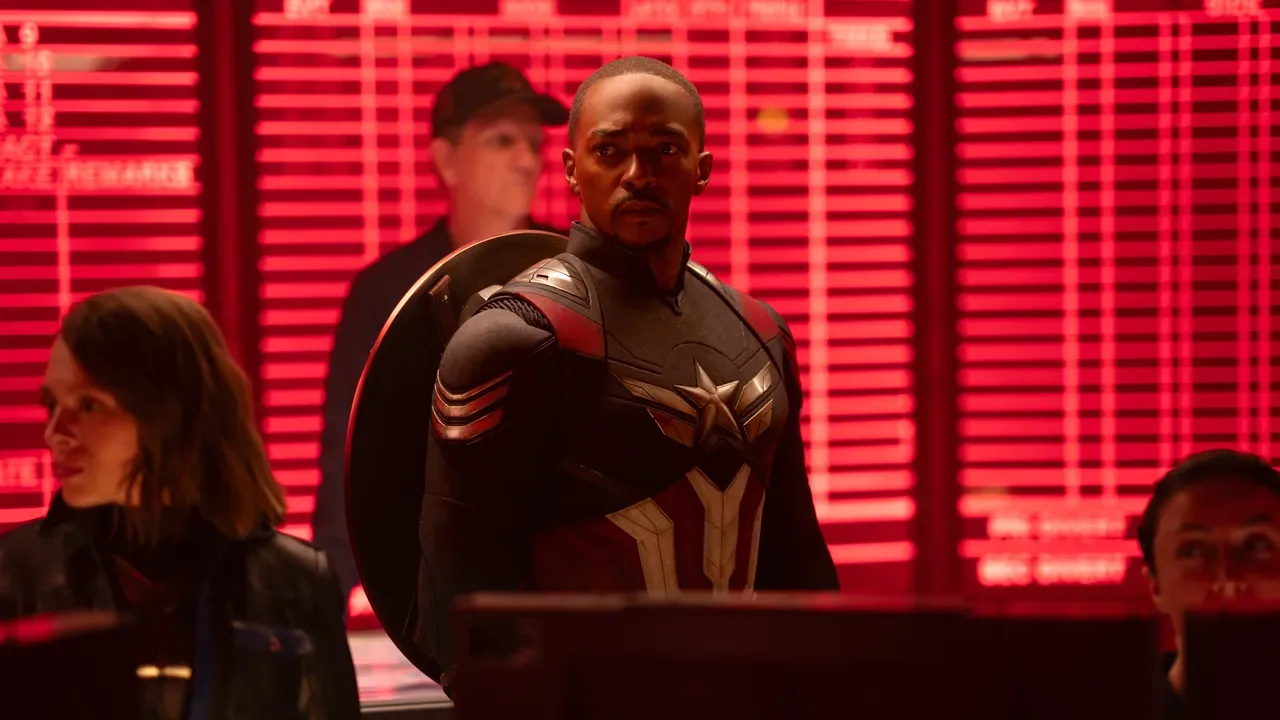
This is all really too bad, because on top of potentially having interesting ideas, Anthony Mackie is a good lead. But despite his charm and charisma, the script hobbles him, the sincerity feels phony, the jokes feel forced, and the fight scenes lack zip. On top of all that, the film refuses to engage with its own ideas, either due to a lack of artistic engagment, or by corporate mandate, I don't know, although I wouldn't hesitate to bet on the idea that this was done in an effort to avoid hurting any of white America's sensitive baby-skin feelings. But either way, that timidity when coupled with the multiple scripts with their clashing tones and conflicting visions means that as far as emotions are concerned, Mackie is often forced to swing wildly between moments, and even within his scenes.
Even worse, for a film that directly alludes to the Tuskegee experiments, the exploitation of Black bodies, and the prison industrial complex, there is almost zero engagement with any of it. Brave New World fails to explain why a Black man would even want to represent a country that, especially now, seems to hate people who look like him. Because of that, Sam seems to have an, at best breathtakingly naive, and at worst fucking stupid, amount of trust in the US government. And this is all the more inexplicable when it's a US government headed-up by a man Sam specifically has a long antagonistic history with. That Sam would go to the White House party... that Isiah Bradley would even go? It's inexplicable to me from a character standpoint. These are two men with ample reason to have no interest in being puppets of the U.S. government, especially one headed up by Thunderbolt Ross, and yet they go along? How can anyone working on this project justify this? Was it just too hard for them to address, was it too much work to write out and follow the drama that organically unfolds, did it get too messy and scary?
Is this the result of cowardice or laziness or both?
That the film has Sam only say as a way of explanation that standing with the President gives people hope, and then it moves on from that, and doesn't even try to justify why Sam would feel that way, or why he is willing to feel that way in this specific moment, is shocking. How is this not a core question, even just from an MCU continuity point of view alone?
But the film just isn't interested in this. It simply waves it off and moves on. And this isn't just disappointing either, that implication of respectability politics that we get instead is simply offensive. It's not all that surprising, sure, but god damn. To sit there and listen as the film argues for the unearned forgiveness of characters who just so happen to be white, then quickly turning around to make rushed, last-second nods to the weight of Black excellence, to the struggle to gain a seat at the table, and of the importance of representation... It just feels so insincere, and so perfunctory, so kneejerk.
At one point, Sam stands there and watches as Isiah get arrested, all while Isiah pleads for help, and Sam does nothing, only urging Isiah to comply?
What the fuck?
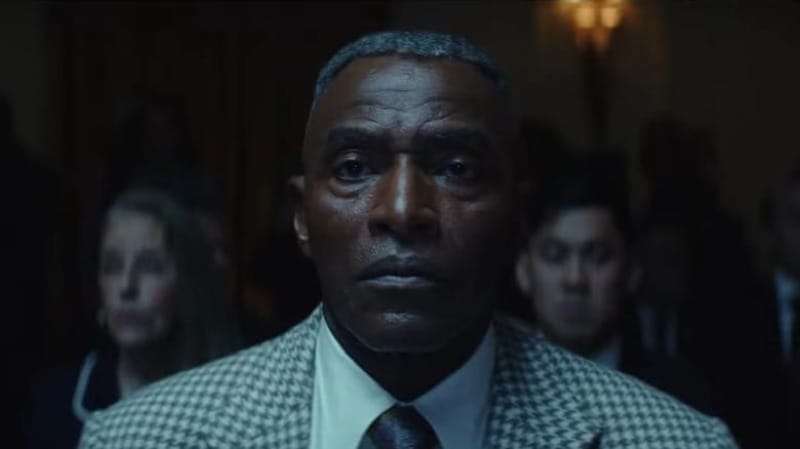
I know the MCU claims to be apolitical, but in moments like that, it sure as fuck feels like it's taking a fucking side. That Sam then continues to serve the American military, pushing for American Imperialism overseas, while fighting to uphold the very system that put Isiah in jail, and all because he invited Isiah to come with him to the White House, cajoled the man into joining him? I just can't square it. To me, the only explanation is that the writers and the filmmakers just didn't give a fuck, and/or barely even spared it a thought.
I straight up do not understand it. It's fucking weird to me that, in a story that clearly believes itself to be a "political thriller" that it would want to step so lightly when it comes to the subject of politics? It's just so fucking weird. It's like making a basketball movie but never showing any actual basketball.
And it's all the worse, as Ross is easily seen as a button-down version of Donald Trump. A barely in control, clearly unqualified, way too old and way too unhealthy white man, who's prone to lies and fascism, and whose shady past choices mean he's vulnerable to blackmail, who then turns into a raging monster when he doesn't get his way?
I mean, it's not a stretch, right?
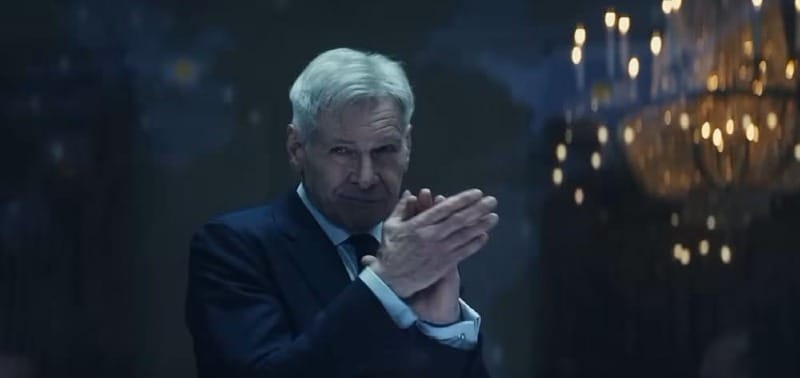
There's clear parallels between Ross' campaign slogan of “Together” and Trump's "Make America Great Again" rhetoric, especially as both hinge on old men running on the promise of unity because of an "alien" threat. All while including a big scene where Ross becomes the Red Hulk and wrecks Washington, D.C., sullying not just the legacy of the Presidency, but also while tearing down the very institutions that serve us. Although, to be fair, this was all made before Trump was back in office, so it's probably unlikely that Ross was specifically meant to echo Trump, especially as we're talking about a film that otherwise does its level best to avoid taking any kind of "political" stance, if only by "political stance" they mean the kind of opinion that the overwhelming majority of white Americans might label as "activist" or "elite" or "libtard."
Really, the only nod to progressive politics in this film is the overt corporate sponsorship on display when the characters drive the new GMC Hummer EV SUVs around, specifically giving us a shot of how the Captain America shield looks when stored in the Hummer's front-trunk.
But whatever the intent, as only stupid people refuse to admit that not being "political" is itself a political act, we end up with an unavoidably clear commentary on our nation and the ugly red-faced monster currently rampaging through our capital. And the worst part is, in the end, the only truly unbelievable part about the whole fucking thing is the idea that a U.S. president could ever have empathy, or a sense of responsibility, or the ability to feel shame enough that it would urge him to want to change and be better.
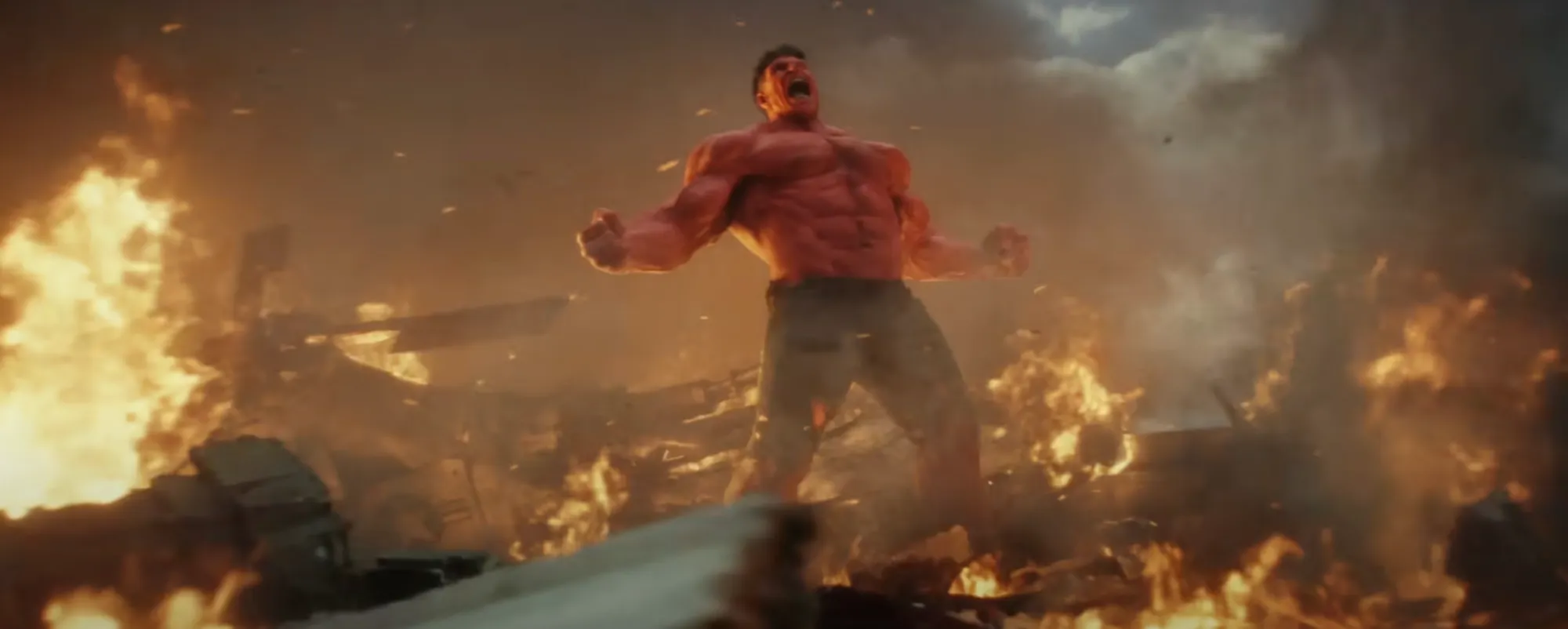
So yeah... of the 34 entries so far in the MCU Mega-franchise, Captain America: Brave New World is definitely the worst one. And as a longtime fan of both Captain America and the Falcon, that is pretty disappointing.
Red Hulk looked good, sure. Mackie was great, and the new suit was cool, and the fact it wraps up a bunch of dangling threads, and is pretty much an open and shut MCU standalone adventure is a good thing too, I guess, as that means we can all just move on, and let this one fade away into the background. And I feel confident in saying that this one will probably end up being a one-off franchise too, because the end credits stinger was nothing but a very vague Secret Wars reference, and there was no mid credits stinger at all.
If there were future plans for this franchise that didn't involve the big upcoming Avengers films, they would've laid those seeds there. But they didn't, so...
In the end, thumb's down.
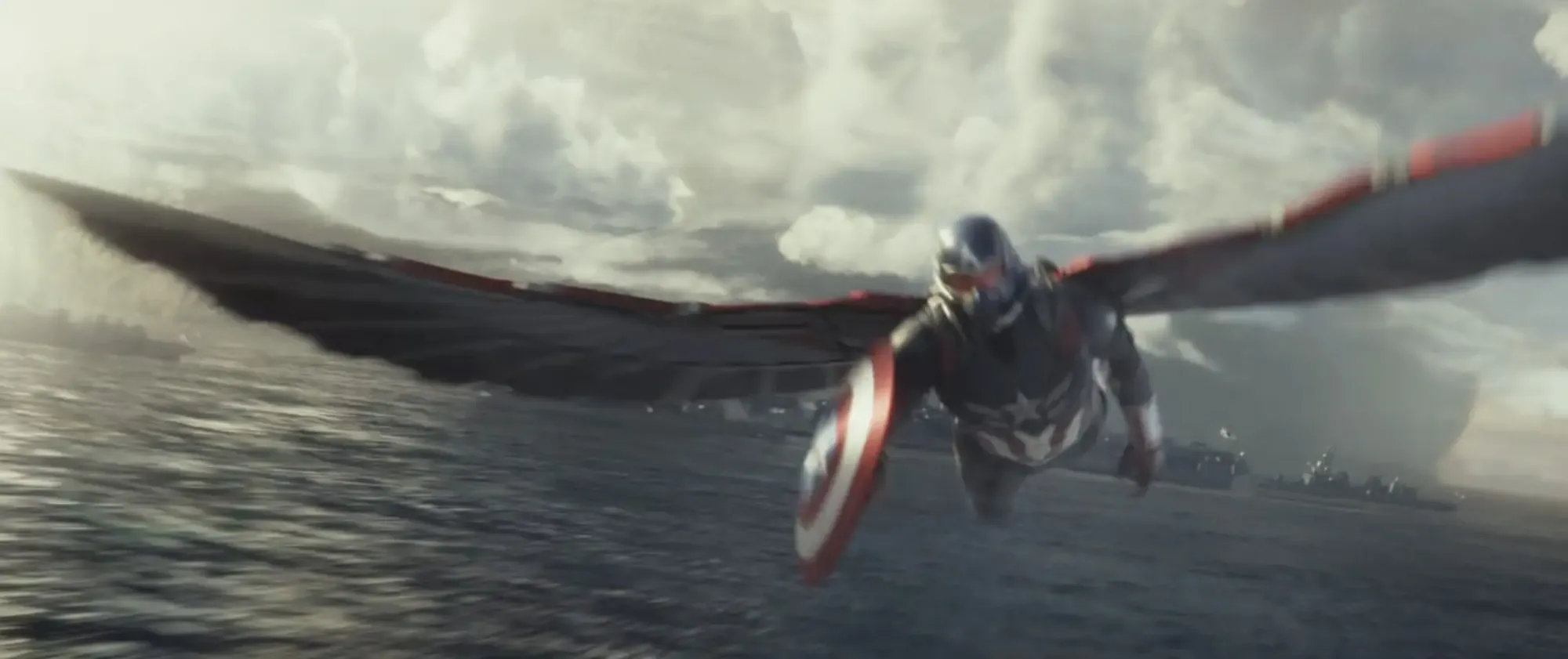
But hey, some better news?
It sounds like Thunderbolts is actually pretty good...
